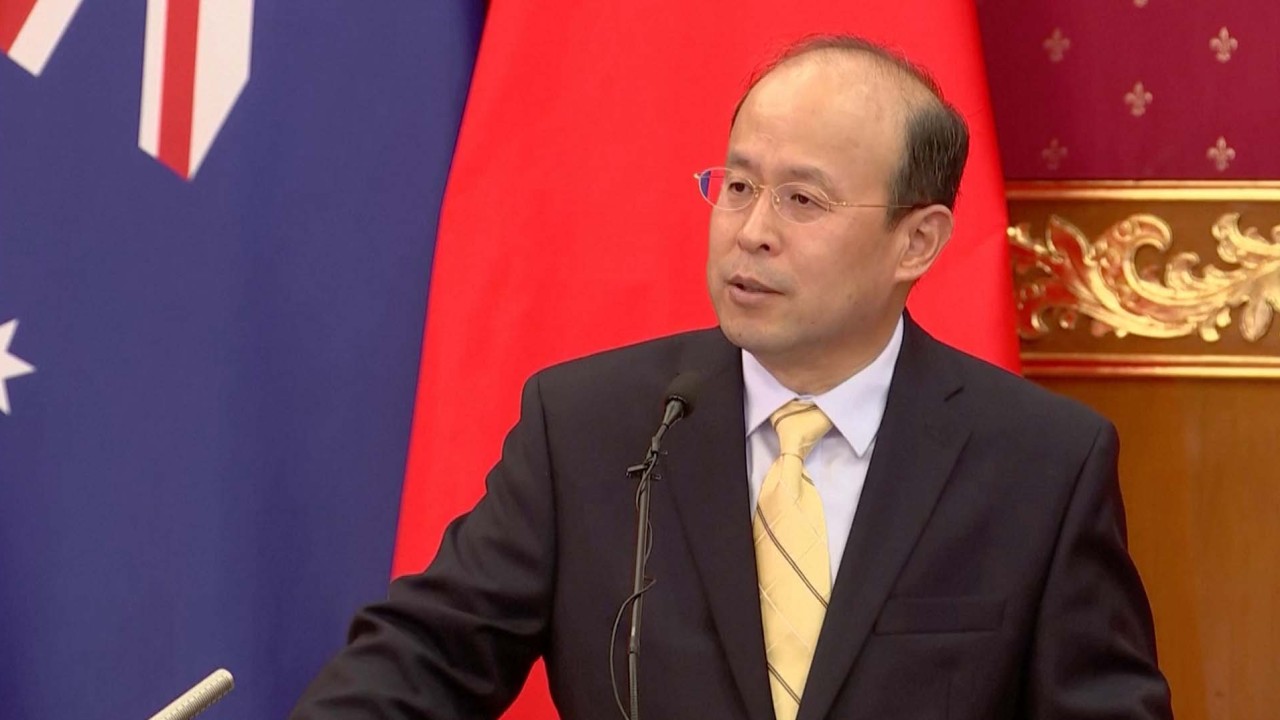
China-Australia relations: ‘inevitable’ trade ties improve as ministers meet, take ‘important step’
- Australia’s Don Farrell spoke virtually with Chinese counterpart Wang Wentao on Monday in first meeting of Australian and Chinese trade ministers since 2019
- Farrell said he had also accepted an invitation to travel to Beijing ‘in the near future’ amid an overall thawing of relations
Australia trade minister Don Farrell urged a “resumption of unimpeded trade” with China on Monday after a landmark meeting with his Chinese counterpart, a step that analysts said will help restore bilateral relations after a turbulent last three years.
Farrell described the virtual meeting with Wang Wentao as representing “another important step in the stabilisation of Australia’s relations with China”, as the Chinese and Australian trade ministers met for the first time since 2019.
Farrell said he had also accepted an invitation to travel to Beijing “in the near future”, with Monday’s discussion pointing to a slow but steady return of trade ties, analysts said.
China’s Ministry of Commerce confirmed “professional, pragmatic and candid exchanges” on handling major trade concerns and developing relations amid hopes that China might lift various import bans and restrictions on Australian products, including lobsters, barley and wine.
[Today’s strains] are disruptive, so who doesn’t want disruption to go away?
“I see it as relatively inevitable [that trade ties will improve], because Australia wants to sell to the single [Chinese] market,” said Stuart Orr, the head of the school head at the Melbourne Institute of Technology.
“[Today’s strains] are disruptive, so who doesn’t want disruption to go away?”
Ties became strained in 2020 when Canberra called for a probe into the origin of the coronavirus without consulting Beijing, and China responded with a range of trade sanctions and import tariffs.
Australian lobsters will also be allowed to legally return to the Chinese market in March, the Post reported last week, citing sources who took part in a closed-door meeting with the Australian prime minister.
I think it’s possible to return to pre-2020 levels, but both sides have to pay attention to a more challenging issue, which is the role of the US
But to restore trade ties to pre-2020 levels, China will want Australia to step back from the pursuit of stronger “security” ties in the Asia-Pacific region led by the United States, as well as Washington’s interference in China’s “internal affairs”, such as the future of Taiwan, said Wang Yong, a professor at the School of International Studies at Peking University.
“I think the gradual resumption of normal trade relations is good for the interest of both sides,” Wang Yong said.
“I think it’s possible to return to pre-2020 levels, but both sides have to pay attention to a more challenging issue, which is the role of the US.”
China is Australia’s largest two-way trading partner in goods and services, according to Australia’s Department of Foreign Affairs and Trade, accounting for nearly one-third of the country’s trade with the world.
Two-way trade with China grew by 6.3 per cent in 2020-21, totalling A$267 billion (US$185 billion), the department said.
The Australian statement said that Monday’s discussions covered a range of trade and investment issues, including “the need for resumption of unimpeded trade for Australian exporters so that Chinese consumers can continue to benefit from high-quality Australian products”.
Chinese importers want relations to return to normal so they can access Australian lithium, which is used for electric vehicle batteries, Orr added.
“It’s hard to get the quantity that China needs, and Australia has that, so its hands are tied if it wants to sustain the manufacturing industry,” he said.
The ministers agreed to step up dialogue as a route towards the resumption of trade, Farrell said, adding that they had also agreed to look into collaboration on climate change and support for business delegations.
“With China’s border now open, Australia looks forward to welcoming Chinese tourists and students back to our shores, as we did with over 1.4 million Chinese visitors in 2019,” Farrell added.
Student arrivals are already rising, representing a boost for owners of rental properties near university campuses, said Carl Thayer, an emeritus professor of politics at the University of New South Wales in Australia.
Iron ore sales are picking up too, he said, with China the long-term top of the commodity from Australia, accounting for 80 per cent of exports in 2021.
But meetings, such as the one on Monday, are “baby steps”, Thayer added, as some Australian exporters have already found new markets to sidestep China, he said, while Chinese buyers of resources have also turned to Africa.
China is willing to resume the economic communication mechanism with Australia and expand cooperation with climate change, new energy and other emerging sectors
“The expectations [in Australia] have always been tempered,” he said.
China’s statement following the meeting said that bilateral economic and trade relations were “facing a crucial period of a window of opportunity”, with the meeting representing “an important step for us to push bilateral economic and trade relations back to normal track”.
“China is willing to resume the economic communication mechanism with Australia and expand cooperation with climate change, new energy and other emerging sectors,” the statement added.
The commerce ministry, though, expressed a concern over Australia’s “tightening security scrutiny on Chinese investment in Australia”.
It added that it “hopes Australia will properly handle the cases so as to offer a fair, open and non-discriminatory business environment for Chinese companies”.


.JPG?itok=J8tgfPmW&v=1659948715)
